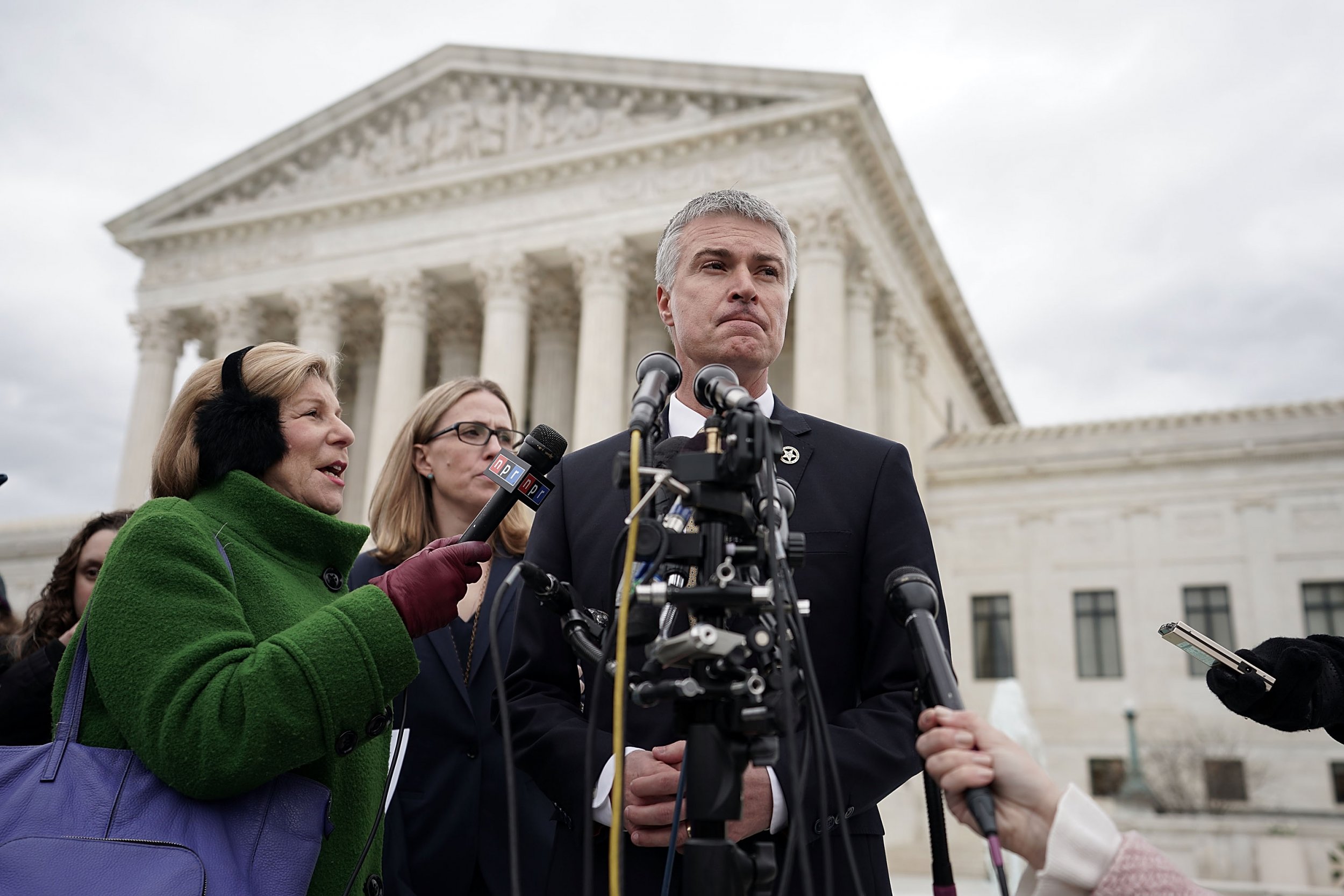
Online shopping may be about to get more expensive.
The Supreme Court of the United States ruled Thursday that online retailers can add state tax to their sales, even if they do not have a physical location in that state. In what has been called the "tax case of the millennium" by the National Conference of State Legislatures, South Dakota sued Wayfair, an online furniture retailer, because the shop omitted state sales tax from its orders.
South Dakota was looking to repeal a 1992 decision which ruled that companies were only required to collect sales tax in states where they had a physical brick-and-mortar location. Representatives of the state argued that the rule needed to be reconsidered in the age of online shopping.
"The Internet's prevalence and power have changed the dynamics of the national economy," wrote Justice Anthony Kennedy in the majority opinion. The 1992 ruling, he wrote did not understand the realities of 2018's online retail sector. Adhering to old rulings, he wrote, "is not an exorable command."
Kennedy's opinion was backed by Clarence Thomas, Samuel Alito, Ruth Bader Ginsburg and Neil Gorsuch. Chief Justice John Roberts dissented along with Stephen Breyer, Sonia Sotomayor, and Elena Kagan.
States lost out on $17.2 billion in sales tax in 2016 because of these loopholes, reported the National Conference of State Legislatures. A lack of sales tax online made it nearly impossible for local stores to compete with their online rivals, South Dakota argued.
Large online retailers, like Amazon, tend to collect sales tax in most states, but not all. Amazon only charges tax for purchases made directly from the online shop, but independent sellers using the site are not required to do so. Websites like Etsy, made up of smaller retailers, also typically don't collect sales tax.
In 2015, Justice Kennedy suggested that it was time to reopen the case, and said that the "legal system should find an appropriate case for this court to re-examine [the issue]." Kennedy criticized the original decision and pointed out that internet sales have increased significantly since the early 1990s.
South Dakota was backed by 35 states in the case, each of which filed an amicus brief in support of online sales tax. "The current tax system favors online retailers over brick-and-mortar businesses, and undermines fair and open competition in the marketplace," wrote the National Retail Federation in a statement.
But Wayfair, an online furniture shop, and other retailers argued that handling the nuanced sales tax rules in each state would be impossible for small online retailers and would put them out of business.
President Donald Trump has also inserted himself into the case. His administration wrote a brief in defense of South Dakota's position and the president has taken issue with Amazon's tax collection policies over Twitter. Trump's own online store, TrumpStore.com, only collects sales tax in two states, according to The Wall Street Journal.
Amazon's stock is down nearly a percent since the announcement, Etsy is down 3.12 percent. Wayfair is down 3.15 percent.
Uncommon Knowledge
Newsweek is committed to challenging conventional wisdom and finding connections in the search for common ground.
Newsweek is committed to challenging conventional wisdom and finding connections in the search for common ground.
About the writer
Nicole Goodkind is a political reporter with a focus on Congress. She previously worked as a reporter for Yahoo Finance, ... Read more
To read how Newsweek uses AI as a newsroom tool, Click here.








